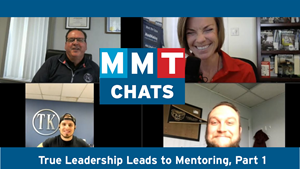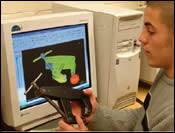SPECIAL FEATURE: Education/Training - Evaluating a First-Rate Continuing Education Program
Before individuals or companies begin workforce education, there are several questions that need to be answered.
Today's fast-changing technology demands that both individuals and companies continue to update skills with top-quality continuing education. A wide range of continuing education and training is available through local and regional colleges and universities, manufacturers' associations, proprietary schools, local school districts and many federal and state agencies. Before you sign on for workforce training or continuing education, you may want to consider several components.
- Does the program really meet my continuing education/training needs?
- Individuals Before registering for continuing education or training, talk with the admissions counselor or the instructor about your expectations. Ask how the course will build skills needed for your current job and how the course will improve your employability in the future. Don't register for training that will not result in employment opportunities.
- Companies When approaching a training provider, ask him or her to work with you to determine the type of continuing education and training that will most benefit your company. Many training providers are willing to customize a curriculum that will address specific company needs. If it's possible, ask for onsite training to make the training more convenient for your employees.
- What facilities are available to support my continuing education/training?
- Individuals If you've chosen a class that will sharpen your writing, mathematical or design skills, make sure your provider has a state-of-the-art computer lab with the latest software packages. If you've chosen a training course to improve your understanding of processing or production, make sure your provider offers the same shop-floor technology that you will be using in current or future employment. Many colleges and universities offer engineering labs equipped by industry so recruiters can ensure that graduates are familiar with the latest equipment.
- Companies You may choose to send your employees offsite for training, but many training providers are willing to bring programs and instructors to your shop floor. Employees can be trained in new processes and procedures with the same tools they use every day.
- What are my instructor's credentials?
- Both individuals and companies looking for continuing education and training should ensure that their instructor has advanced education, industry experience and teaching experience. If possible, talk to others who studied with this instructor and get their perspectives.
- What programs can the provider offer to assist me with the cost of continuing education or training?
- Individuals Depending on their circumstances, individuals may qualify for local, state or federal job training funds. Often, local companies or foundations support individual job training, depending on your circumstances. Ask your admissions counselor or program provider to explore any opportunities available to help you meet the cost of continuing education or training.
- Companies Companies often qualify for workforce development funding from their state government. Before you contract with a training provider, ask them to investigate any funding sources that might reduce your training costs.
Once you've answered these four questions and are satisfied that the training you've chosen is right for you or your company, don't hesitate to act. If you haven't done it already, search the Internet for training opportunities, read industry newsletters, check local schools, college and universities or call your local manufacturer's association. The sooner you improve your skills, the better your chances for increased earnings, employment opportunities and job satisfaction. Continuing education and training are out there-go out and find your future!
|
Related Content
Hands-on Workshop Teaches Mold Maintenance Process
Intensive workshop teaches the process of mold maintenance to help put an end to the firefighting culture of many toolrooms.
Read MoreLeading Mold Manufacturers Share Best Practices for Improving Efficiency
Precise Tooling Solutions, X-Cell Tool and Mold, M&M Tool and Mold, Ameritech Die & Mold, and Cavalier Tool & Manufacturing, sit down for a fast-paced Q&A focused on strategies for improving efficiencies across their operations.
Read MoreTackling a Mold Designer Shortage
Survey findings reveal a shortage of skilled mold designers and engineers in the moldmaking community, calling for intervention through educational programs and exploration of training alternatives while seeking input from those who have addressed the issue successfully.
Read MoreICYMI: MMT Chats: True Leadership Leads to Mentoring, Part 1
This trio from TK Mold and Engineering in Romeo, Michigan, joins me to discuss the role of leadership and culture in mentorship. This episode is brought to you by ISCAR with New Ideas for Machining Intelligently.
Read MoreRead Next
Molding New Moldmakers
One school—with industry’s help—is a model for our future moldmakers’ education.
Read MoreHow to Use Continuing Education to Remain Competitive in Moldmaking
Continued training helps moldmakers make tooling decisions and properly use the latest cutting tool to efficiently machine high-quality molds.
Read MoreReasons to Use Fiber Lasers for Mold Cleaning
Fiber lasers offer a simplicity, speed, control and portability, minimizing mold cleaning risks.
Read More_970x90 3.png;maxWidth=970;quality=90)






















